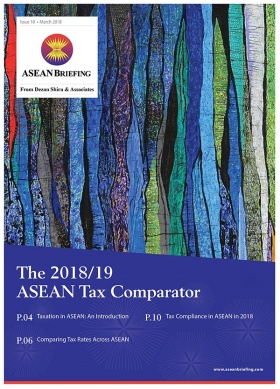Cambodia’s DTAs with Singapore and Thailand Come into Effect
By Dezan Shira & Associates
Editor: Vasundhara Rastogi
On January 1, 2018, Cambodia’s two Double Tax Agreements (DTAs) – with Singapore and Thailand – came into effect. The DTA with Singapore – Cambodia’s first income tax treaty – was signed on March 20, 2017, whereas the DTA with Thailand was signed on September 7, 2017. The two DTAs aim to clarify taxation rights on all forms of income arising from cross-border economic activities between the signatory jurisdictions in respect of tax on profit, including withholding tax, additional profit tax on dividend distribution and capital gains tax; and tax on salary while minimizing double taxation. The agreements also provide for reduction or exemption of tax on certain types of income, lowering barriers to cross-border investment and encouraging bilateral trade.
![]() RELATED: Tax Services from Dezan Shira & Associates
RELATED: Tax Services from Dezan Shira & Associates
In terms of the rates applied on withholding tax, both the DTAs impose a limit of 10 percent that the payer’s state can charge on interest from dividends, interest, royalties, and technical fees. For Cambodian taxpayers, this rate is almost a third less than the previous rate (for non-residents) at 14 percent. Further, the DTAs may also provide for an exemption from withholding tax in certain circumstances where interest is paid to the government of the respective countries.
The key provisions set under the Cambodia-Singapore DTA include the tax treatment of international transport, capital gains, independent personal services, dependent personal services, methods for the elimination of double taxation, rules for the exchange of tax information, and income from immovable property. As per the agreement, the income from immovable property located in Cambodia will be taxed in Cambodia (and vice versa for property located in Singapore) and the capital gains tax will only apply within the state in which the seller (of the capital) is resident for tax purposes.
The Thai – Cambodia DTA include similar provisions, though, the full details of the DTA have yet to be released. Under the Thai – Cambodia DTA, tax paid in the other country will be deductible in a taxpayer’s home country at an amount equal to the tax actually paid. Tax exemptions or deductions will be regarded as a form of tax credit. Further, income tax levied on air transport between the two countries will also be waived.
 RELATED: Cambodia’s Garment Manufacturing Industry
RELATED: Cambodia’s Garment Manufacturing Industry
Implications for businesses
A DTA, essentially, provides certainty to investors and businesses engaged in cross-border transactions between the participant countries. Cambodia’s DTAs with Singapore and Thailand not only eliminate double taxation – a key deterrent to cross-border trade but also establish the taxing rights of each country and provide avenues through which the settlement of tax disputes is possible. Besides, the DTAs offer local businesses an opportunity to expand and invest in other countries.
Businesses that are a tax resident of either Cambodia, Singapore or Thailand and carry out business activities in other jurisdictions must consult tax professionals to know more about the provisions covered under the respective DTA and how they may apply to their businesses.
About Us
ASEAN Briefing is produced by Dezan Shira & Associates. The firm assists foreign investors throughout Asia and maintains offices throughout ASEAN, including in Singapore, Hanoi, Ho Chi Minh City and Jakarta. Please contact us at asia@dezshira.com or visit our website at www.dezshira.com.





